Top 10 Salesforce Admin and Developer Blogs to Follow in 2024

Introduction:
In the dynamic world of Salesforce administration and development, staying ahead of the curve is crucial. As we step into 2024, the Salesforce ecosystem continues to evolve, introducing new features, best practices, and innovative solutions. To keep pace with these changes, it’s essential for professionals to stay informed and connected. In this blog, we’ll explore the top 10 Salesforce Admin and Developer blogs that are paving the way for success in 2024.
1. Salesforce Ben:
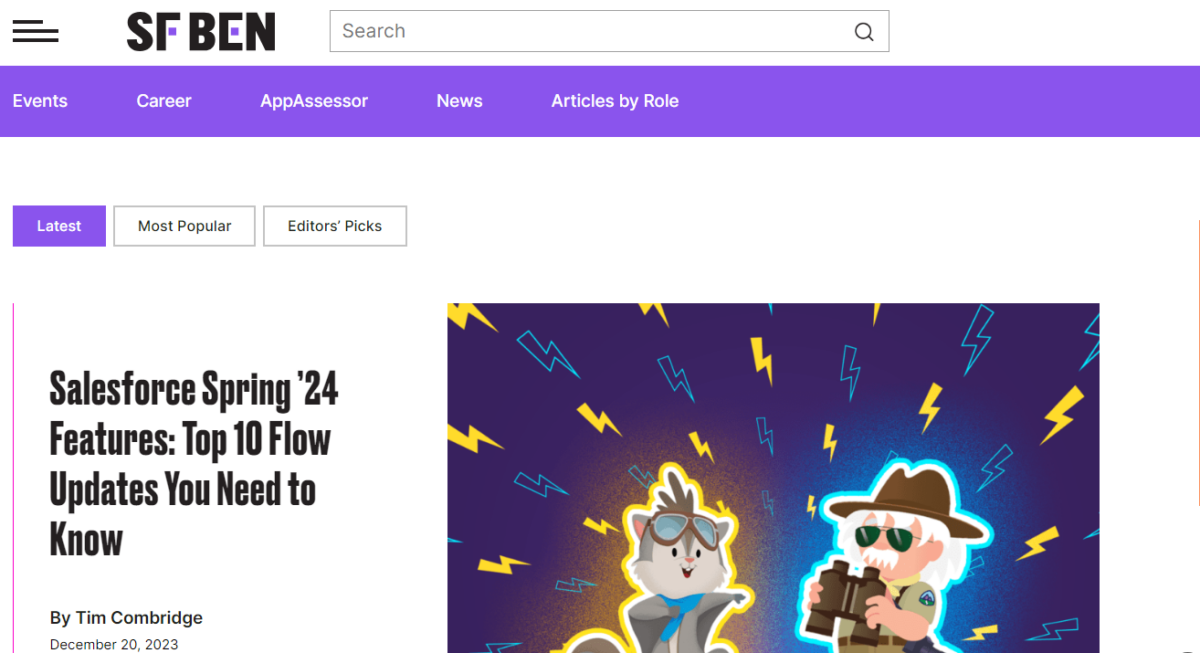
With a finger on the pulse of Salesforce trends, Salesforce Ben remains a cornerstone for administrators and developers alike. This blog covers a wide range of topics, from platform updates to certification guides. Its engaging content and community-driven approach make it a must-follow resource for staying informed and connected.
2. Admin Hero:
Admin Hero, founded by Brent Downey, is a treasure trove of practical tips and real-world solutions for Salesforce administrators. The blog focuses on empowering admins to overcome challenges, enhance productivity, and optimize their Salesforce instances. Brent’s insights and deep understanding of the platform make Admin Hero an invaluable resource.
3. David Liu’s SFDC99:

David Liu’s SFDC99 is an oasis for Salesforce developers, especially those starting their journey. His blog provides an abundance of tutorials, code snippets, and career advice. David’s friendly and approachable style makes complex concepts digestible, making SFDC99 a beacon for developers looking to hone their skills.
4. Jenwlee’s Salesforce Blog:
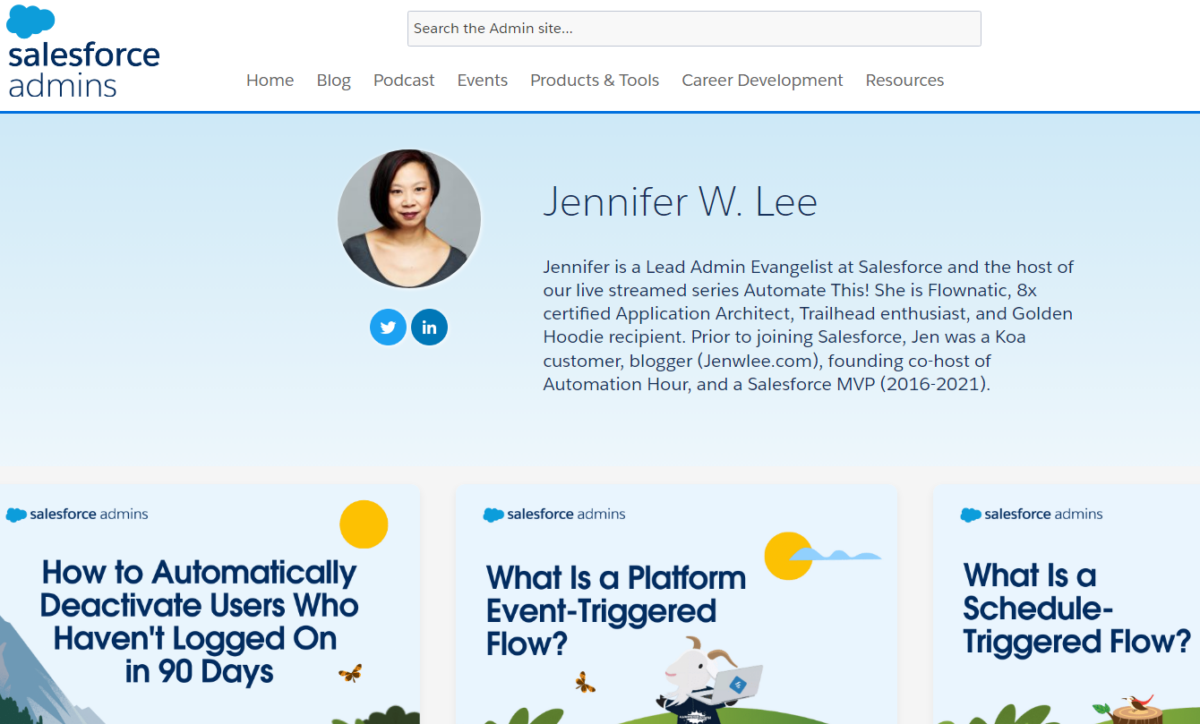
Jennifer Lee, known as Jenwlee in the Salesforce community, shares her extensive knowledge and experience through her blog. Targeted towards both admins and developers, Jen’s blog covers a variety of topics, including Apex coding, Lightning components, and practical admin solutions. Her hands-on examples and clear explanations make her blog a valuable resource for learners at all levels.
5. Trailhead Blog:
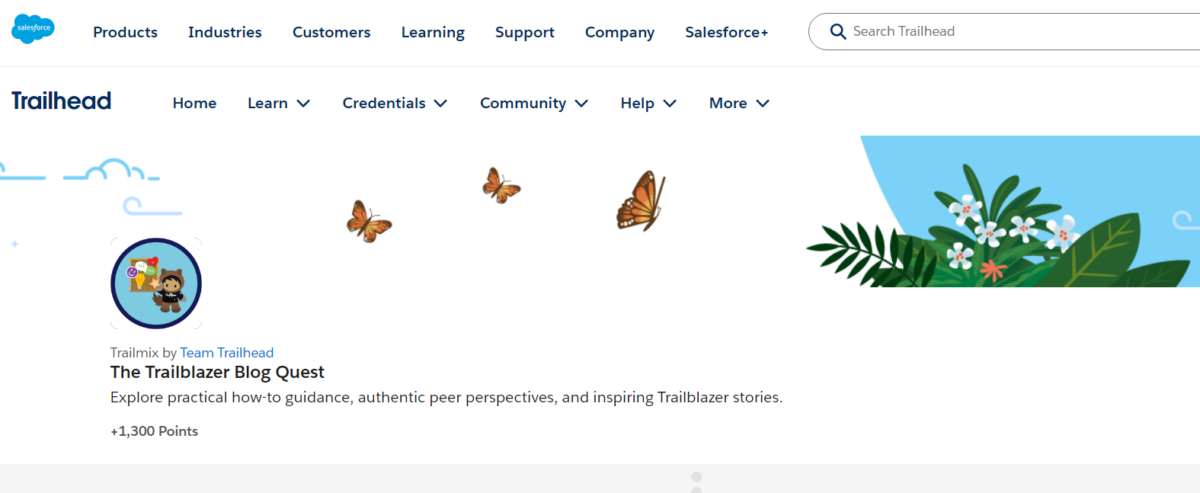
Trailhead, Salesforce’s official learning platform, extends its reach through its blog. Trailhead Blog is a hub for the latest updates, best practices, and success stories within the Salesforce ecosystem. From beginner guides to advanced techniques, Trailhead Blog caters to a diverse audience, ensuring there’s something for everyone.
6. Mike Wheeler Media:
For those who prefer learning through video content, Mike Wheeler Media stands out. Mike, a Salesforce MVP, provides a variety of courses and tutorials covering Salesforce administration, development, and certifications. His blog complements his video content, offering additional insights and resources for Salesforce professionals.
7. Salesforce Weekly:
Salesforce Weekly, a collaborative effort by Chris Edwards and Mike Gill, provides a unique blend of humour and expertise. The blog covers a wide range of topics, including release highlights, best practices, and community spotlights. With their witty writing style, Chris and Mike deliver valuable content that keeps readers entertained and informed.
8. Focus on Force:
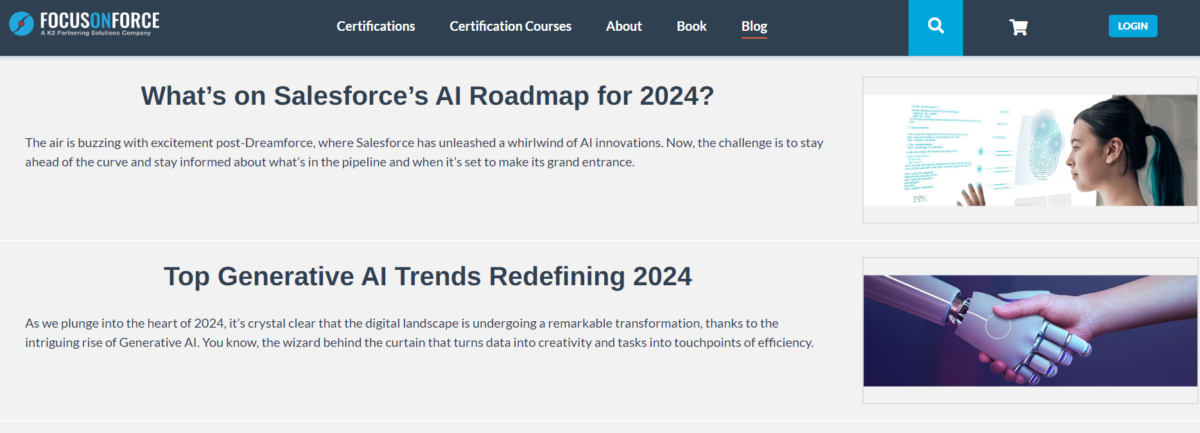
Focus on Force, led by Martin Gessner, focuses on Salesforce certifications and career advancement. The blog offers study guides, practice exams, and insightful articles to help professionals prepare for various Salesforce certifications. For those aiming to climb the career ladder, Focus on Force is an indispensable resource.
9. Shell Black’s Salesforce Blog:
Shell Black, a seasoned Salesforce consultant, shares his wealth of knowledge through his blog. Shell’s insights into Salesforce implementation strategies, best practices, and industry trends make his blog a go-to resource for administrators and consultants seeking expert guidance.
10. Salesforce Developers Blog:
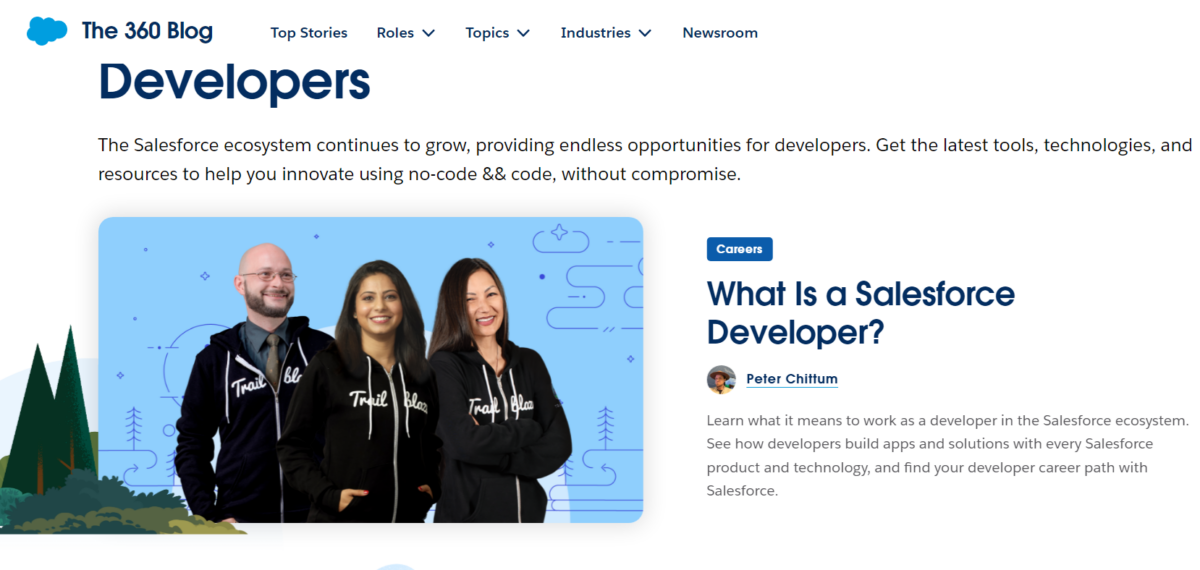
Last but certainly not least, the official Salesforce Developers Blog is a goldmine of information for developers working in a top software development company in India or anywhere else straight from the source. This blog provides deep dives into technical aspects, showcases new features, and offers best practices directly from Salesforce engineers. Following this blog ensures you’re always in the loop about the latest developments on the platform.
Conclusion:
As we embark on the journey through 2024, these top 10 Salesforce Admin and Developer blogs will serve as beacons of knowledge and inspiration. Whether you’re an experienced professional or just starting, staying connected with these resources will empower you to navigate the evolving Salesforce landscape successfully. Happy learning and trailblazing!!!
FAQs
Does Salesforce Admin have a future?
Yes, the role of a Salesforce Admin holds a promising future. Salesforce is a leading customer relationship management (CRM) platform that enables businesses to manage their interactions with customers and streamline various processes. As companies increasingly recognize the importance of customer-centric approaches, the demand for Salesforce Admins is expected to grow.
Salesforce Admins play a critical role in configuring, customizing, and maintaining Salesforce implementations to meet the unique needs of their organizations. They ensure smooth operations, user adoption, and leverage the platform’s capabilities for improved business outcomes. With Salesforce continually evolving and introducing new features, admins must stay updated and adapt to changes, making their skills highly relevant.
Moreover, the rise of cloud computing and the ongoing digital transformation across industries further solidify the importance of CRM platforms like Salesforce. As businesses strive to enhance customer experiences, optimize sales processes, and leverage data-driven insights, the expertise of Salesforce Admins becomes invaluable. The role offers career advancement opportunities, and certified professionals are likely to remain in demand as businesses rely on Salesforce to drive efficiency and innovation in their operations.
Which is best among Salesforce admin or developer?
Choosing between a Salesforce administrator and a developer depends on individual preferences, skills, and career goals. A Salesforce administrator primarily focuses on configuring and customizing the platform to meet business requirements. They excel in user management, security, and ensuring the smooth functioning of Salesforce applications. Administrators need a deep understanding of business processes and excellent communication skills to bridge the gap between technical and non-technical users.
On the other hand, a Salesforce developer specializes in coding and building custom solutions to extend the platform’s functionality. Developers working in a top web development company in India or anywhere else create Apex code, Lightning components, and integrations, turning business requirements into technical solutions. They require strong programming skills, problem-solving abilities, and an understanding of Salesforce’s development framework.
Ultimately, the “best” role depends on your strengths and interests. If you enjoy configuring systems, understanding business processes, and working closely with end-users, the role of a Salesforce administrator may be more suitable. If you have a passion for coding, problem-solving, and creating custom solutions, then becoming a Salesforce developer might be the better fit. Many professionals even choose to pursue both paths, becoming versatile experts in both administration and development.
Who earns more Salesforce admin or Salesforce developer?
The earning potential of a Salesforce Admin versus a Salesforce Developer can vary based on factors such as experience, skills, and geographic location. In general, Salesforce Developers working in a top software development company in India or anywhere else tend to command higher salaries than Salesforce Admins. This is because Salesforce Developers require specialized technical skills in programming and customization, allowing them to create and optimize complex solutions tailored to specific business needs.
Salesforce Admins, on the other hand, focus on configuring and maintaining the Salesforce platform, ensuring its smooth operation and alignment with business processes. While Salesforce Admins play a crucial role in managing user access, data integrity, and system customization, their responsibilities may not require the same level of technical expertise as developers.
However, it’s important to note that the demand for both roles is strong, given the widespread adoption of Salesforce in businesses. Factors such as certifications, industry experience, and continuous skill development also influence earning potential. Ultimately, individuals with a combination of strong technical skills and comprehensive Salesforce knowledge, whether as an Admin or Developer, can position themselves for lucrative career opportunities in the Salesforce ecosystem.
How do I become a Salesforce developer in 2024?
To become a Salesforce developer in 2024, follow these key steps to navigate the evolving landscape of this in-demand role. Begin by acquiring a strong foundation in Salesforce fundamentals through online resources, official documentation, and trailhead modules. Master the declarative development tools such as Process Builder, Flow Builder, and Schema Builder to understand the platform’s capabilities without code.
Next, delve into Apex, Salesforce’s programming language, and Lightning Web Components for programmatic development. Stay updated with the latest releases and industry trends by actively participating in the Salesforce community, attending webinars, and joining forums. Consider pursuing Salesforce certifications to validate your skills, with the Salesforce Certified Platform Developer being a crucial accreditation.
Build a solid portfolio of projects showcasing your practical experience, and collaborate with peers in the Salesforce ecosystem to expand your network. Engage with real-world scenarios and business use cases to enhance your problem-solving abilities. Explore specialized areas like integrations, data migration, and mobile development to diversify your skill set.
Lastly, cultivate soft skills such as communication, adaptability, and teamwork, as these are integral in a dynamic field like Salesforce development. By combining continuous learning, practical application, and a robust professional network, you can position yourself for success as a Salesforce developer in 2024 and work in a top software development company in India or anywhere else.

